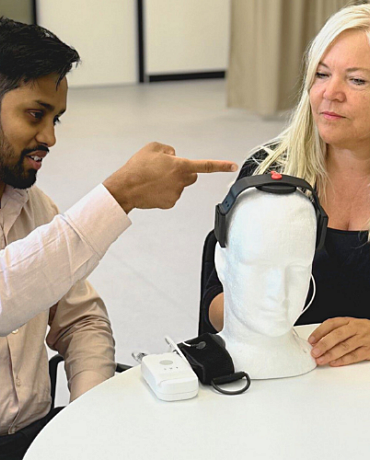- Researchers from NeuRA and UNSW Sydney have found that people with schizophrenia who have high levels of brain inflammation show clear changes in blood vessels and fewer signs of new neurons.
- The study looked at inflammation, blood vessel changes and neuron growth in the brain’s subependymal zone, or SEZ.
- The research paves the way for new targeted treatments that protect blood vessel health and limit inflammation in the brain, to help support the blood-brain barrier and neuron development in people with schizophrenia.
There may be a new therapeutic direction for schizophrenia after a new study revealed impacts of inflammation, blood vessel changes and reduced new neuron growth in a key brain region.
The study, ‘Altered Vascular and Angiogenic Transcripts in the Neurogenic Niche in Neuroinflammatory-Type Schizophrenia’, was led by researchers from Neuroscience Research Australia (NeuRA) and the University of NSW Sydney (UNSW) and published in Schizophrenia Bulletin.
NeuRA research fellow, Dr Hayley North, with support from senior author, Professor Cyndi Shannon Weickert, said the study examined three important processes that had often been studied separately, being inflammation, blood vessel changes and reduced new neuron growth in the brain’s subependymal zone (SEZ).
“We found for people with schizophrenia who have high levels of brain inflammation, there are clear changes in blood vessels,” Dr North said.
“These changes include more markers of vessel activation and growth, more signs of immune cell traffic, and fewer signs of newborn neurons.
“It’s as if the ‘garden beds’ for growing new brain cells are being disturbed by potentially leaky and overworked blood vessels.”
Researchers studied post-mortem human brain tissue of 54 people with schizophrenia and 52 unaffected controls. About 40% of people with schizophrenia show elevated brain inflammation so the study also analysed the vascular impacts on low-inflammation and high-inflammation schizophrenia subgroups.
“This is the first study to show in human brain tissue that vascular changes in the SEZ are most pronounced in people with schizophrenia who also have high inflammation,” Dr North said.
“It builds on previous Australian research by directly tying inflammation, blood vessel changes and neurogenesis together. The results also highlight the importance of sub-group specific and region-focused analyses in understanding schizophrenia’s complexity, as alterations in the SEZ differ from those observed in other brain regions and when looking at schizophrenia as a single group.
“This research paves the way for targeted therapeutic strategies aimed at mitigating inflammation, preserving blood-brain barrier integrity and supporting new neuron growth in schizophrenia.”
Dr North said the research also raised further important questions about the causal relationships between inflammation, blood vessel changes and neuron development.
None of the blood-brain barrier or angiogenesis related genes or proteins of interest in the study significantly correlated with lifetime antipsychotic dose or age of schizophrenia onset.
The published paper is available here.







